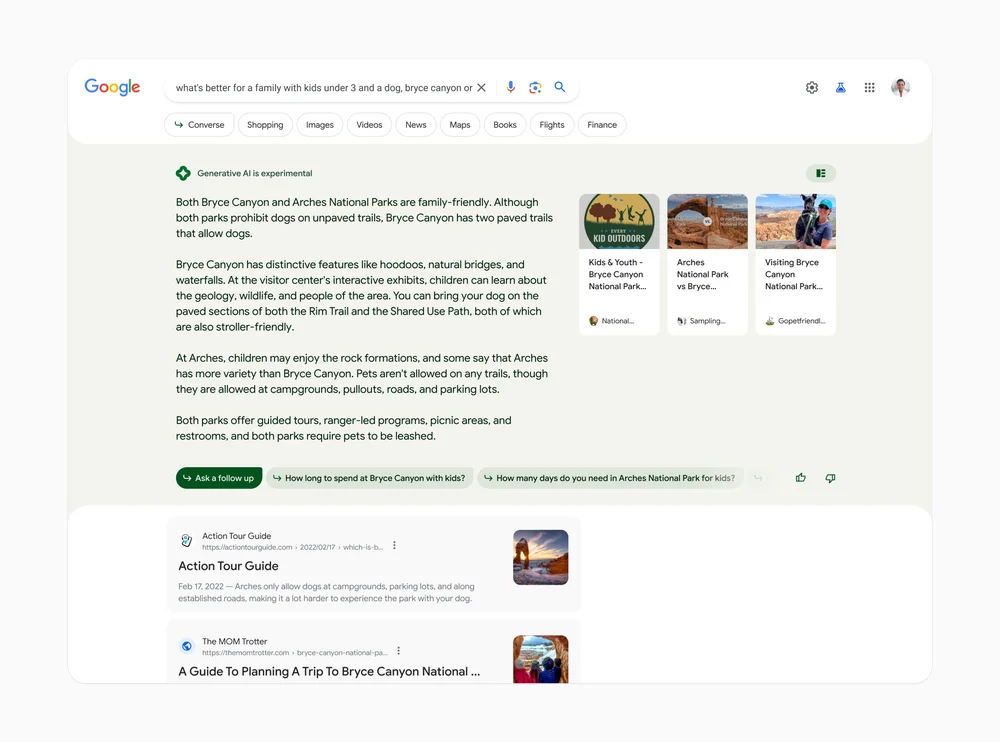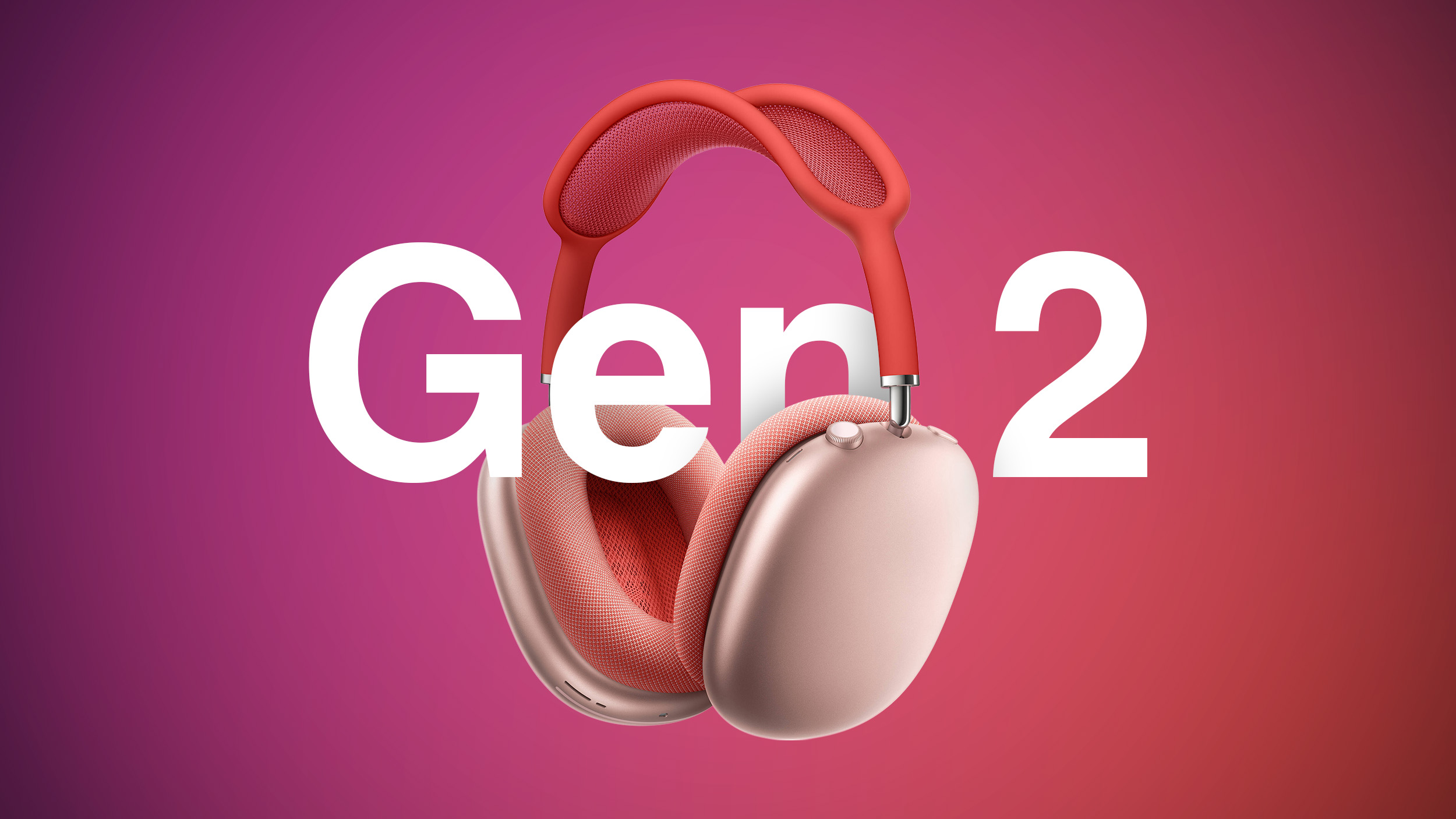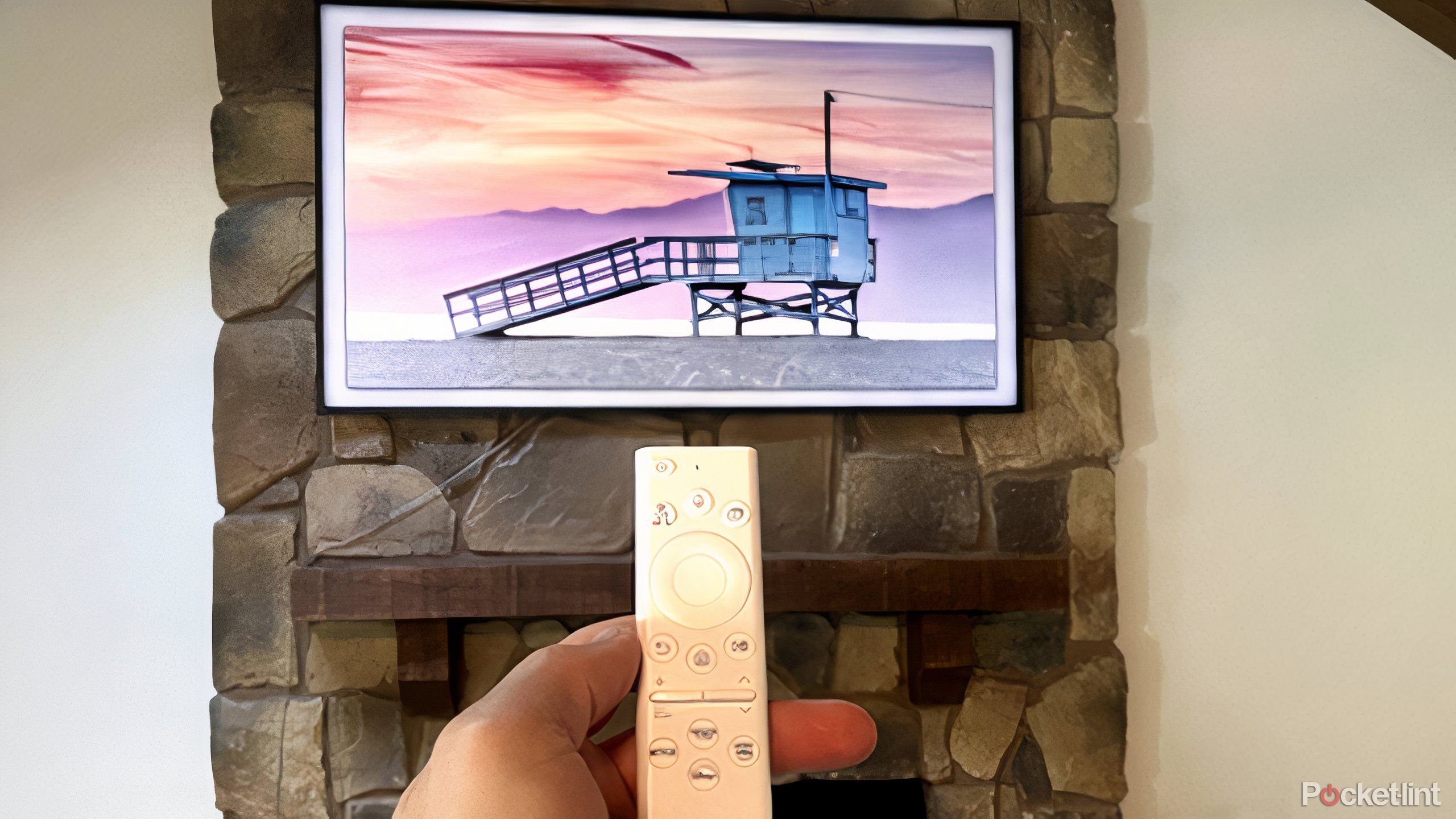Google Search finally takes the AI route as Microsoft Bing poses threat
It was bound to happen. Google Search is changing forever and driving this change is generative AI. Don’t confuse it with Bard because Google believes the future of its most important service, Search, does not lie with the implementation of chatbots. Instead, the new Google Search will integrate generative AI deeply, so anything you search for will have a more precise answer. Essentially, an answer that will eliminate the need for you to make multiple searches and connect the dots to get your answer.
If you have used the new Bing, which uses ChatGPT, you would know what Google is talking about. In addition to the search results you usually get on Search, a new orange-coloured snippet appears on top with an AI-generated answer for your search. Say, you want to know the best way to utilise food leftovers to minimise wastage. A regular search will bring up results from different websites. But what if you are looking to utilise the leftovers of a particular dish? The generative AI, on the other hand, will scout out the internet for the best answer ready for you. That means it will go through multiple articles to compose an answer for you pertaining to the particular dish.
“With new generative AI capabilities in Search, we’re now taking more of the work out of searching, so you’ll be able to understand a topic faster, uncover new viewpoints and insights, and get things done more easily,” said Elizabeth Reid, vice president and GM of Search.
In one of the demonstrations during the keynote, Reid asked ‘Search’ a random query. It said: “what’s better for a family with kids under 3 and a dog, bryce canyon or arches.” Without generative AI, you would be required to break this one question into smaller ones and sort through different results to get to your answer by piecing them together. The generative AI-powered Search will “do some of that heavy lifting for you.” An AI-powered snapshot will appear in an orange blob with the most suitable answer. Below this snapshot, you can see suggested next steps, including the ability to ask follow-up questions. So you can ask “How long to spend at Bryce Canyon with kids?” The context of your conversation with Search will depend on the first and subsequent follow-up questions.
With the help of Google’s most advanced LLM technology to date, including the newly announced PaLM 2 and Multitask Unified Model (MuM), the “AI Snapshot” can understand different types of media you may ask. Google said generative AI in Search can help you understand the full picture when you’re shopping. That essentially means you will see product descriptions, up-to-date reviews, ratings, prices, product images, and the important factors to consider when searching for a product.
Google Search is already pretty deft at handling searches. So Google is confident about most search queries and hopes it stays ahead of Bing in that department. But the other department — the one that uses generative AI to deliver mostly accurate results, is pushing for a 360-degree implementation of generative AI. So, instead of a query like “Is Paris a good honeymoon spot?,” generative AI can answer a question like “Is Paris a good honeymoon spot if my budget is under Rs 1 lakh?”
The post Google Search finally takes the AI route as Microsoft Bing poses threat appeared first on Techlusive.

It was bound to happen. Google Search is changing forever and driving this change is generative AI. Don’t confuse it with Bard because Google believes the future of its most important service, Search, does not lie with the implementation of chatbots. Instead, the new Google Search will integrate generative AI deeply, so anything you search for will have a more precise answer. Essentially, an answer that will eliminate the need for you to make multiple searches and connect the dots to get your answer.
If you have used the new Bing, which uses ChatGPT, you would know what Google is talking about. In addition to the search results you usually get on Search, a new orange-coloured snippet appears on top with an AI-generated answer for your search. Say, you want to know the best way to utilise food leftovers to minimise wastage. A regular search will bring up results from different websites. But what if you are looking to utilise the leftovers of a particular dish? The generative AI, on the other hand, will scout out the internet for the best answer ready for you. That means it will go through multiple articles to compose an answer for you pertaining to the particular dish.
“With new generative AI capabilities in Search, we’re now taking more of the work out of searching, so you’ll be able to understand a topic faster, uncover new viewpoints and insights, and get things done more easily,” said Elizabeth Reid, vice president and GM of Search.
In one of the demonstrations during the keynote, Reid asked ‘Search’ a random query. It said: “what’s better for a family with kids under 3 and a dog, bryce canyon or arches.” Without generative AI, you would be required to break this one question into smaller ones and sort through different results to get to your answer by piecing them together. The generative AI-powered Search will “do some of that heavy lifting for you.” An AI-powered snapshot will appear in an orange blob with the most suitable answer. Below this snapshot, you can see suggested next steps, including the ability to ask follow-up questions. So you can ask “How long to spend at Bryce Canyon with kids?” The context of your conversation with Search will depend on the first and subsequent follow-up questions.
With the help of Google’s most advanced LLM technology to date, including the newly announced PaLM 2 and Multitask Unified Model (MuM), the “AI Snapshot” can understand different types of media you may ask. Google said generative AI in Search can help you understand the full picture when you’re shopping. That essentially means you will see product descriptions, up-to-date reviews, ratings, prices, product images, and the important factors to consider when searching for a product.
Google Search is already pretty deft at handling searches. So Google is confident about most search queries and hopes it stays ahead of Bing in that department. But the other department — the one that uses generative AI to deliver mostly accurate results, is pushing for a 360-degree implementation of generative AI. So, instead of a query like “Is Paris a good honeymoon spot?,” generative AI can answer a question like “Is Paris a good honeymoon spot if my budget is under Rs 1 lakh?”
The post Google Search finally takes the AI route as Microsoft Bing poses threat appeared first on Techlusive.
It was bound to happen. Google Search is changing forever and driving this change is generative AI. Don’t confuse it with Bard because Google believes the future of its most important service, Search, does not lie with the implementation of chatbots. Instead, the new Google Search will integrate generative AI deeply, so anything you search for will have a more precise answer. Essentially, an answer that will eliminate the need for you to make multiple searches and connect the dots to get your answer.
If you have used the new Bing, which uses ChatGPT, you would know what Google is talking about. In addition to the search results you usually get on Search, a new orange-coloured snippet appears on top with an AI-generated answer for your search. Say, you want to know the best way to utilise food leftovers to minimise wastage. A regular search will bring up results from different websites. But what if you are looking to utilise the leftovers of a particular dish? The generative AI, on the other hand, will scout out the internet for the best answer ready for you. That means it will go through multiple articles to compose an answer for you pertaining to the particular dish.
“With new generative AI capabilities in Search, we’re now taking more of the work out of searching, so you’ll be able to understand a topic faster, uncover new viewpoints and insights, and get things done more easily,” said Elizabeth Reid, vice president and GM of Search.
In one of the demonstrations during the keynote, Reid asked ‘Search’ a random query. It said: “what’s better for a family with kids under 3 and a dog, bryce canyon or arches.” Without generative AI, you would be required to break this one question into smaller ones and sort through different results to get to your answer by piecing them together. The generative AI-powered Search will “do some of that heavy lifting for you.” An AI-powered snapshot will appear in an orange blob with the most suitable answer. Below this snapshot, you can see suggested next steps, including the ability to ask follow-up questions. So you can ask “How long to spend at Bryce Canyon with kids?” The context of your conversation with Search will depend on the first and subsequent follow-up questions.
With the help of Google’s most advanced LLM technology to date, including the newly announced PaLM 2 and Multitask Unified Model (MuM), the “AI Snapshot” can understand different types of media you may ask. Google said generative AI in Search can help you understand the full picture when you’re shopping. That essentially means you will see product descriptions, up-to-date reviews, ratings, prices, product images, and the important factors to consider when searching for a product.
Google Search is already pretty deft at handling searches. So Google is confident about most search queries and hopes it stays ahead of Bing in that department. But the other department — the one that uses generative AI to deliver mostly accurate results, is pushing for a 360-degree implementation of generative AI. So, instead of a query like “Is Paris a good honeymoon spot?,” generative AI can answer a question like “Is Paris a good honeymoon spot if my budget is under Rs 1 lakh?”
The post Google Search finally takes the AI route as Microsoft Bing poses threat appeared first on Techlusive.




